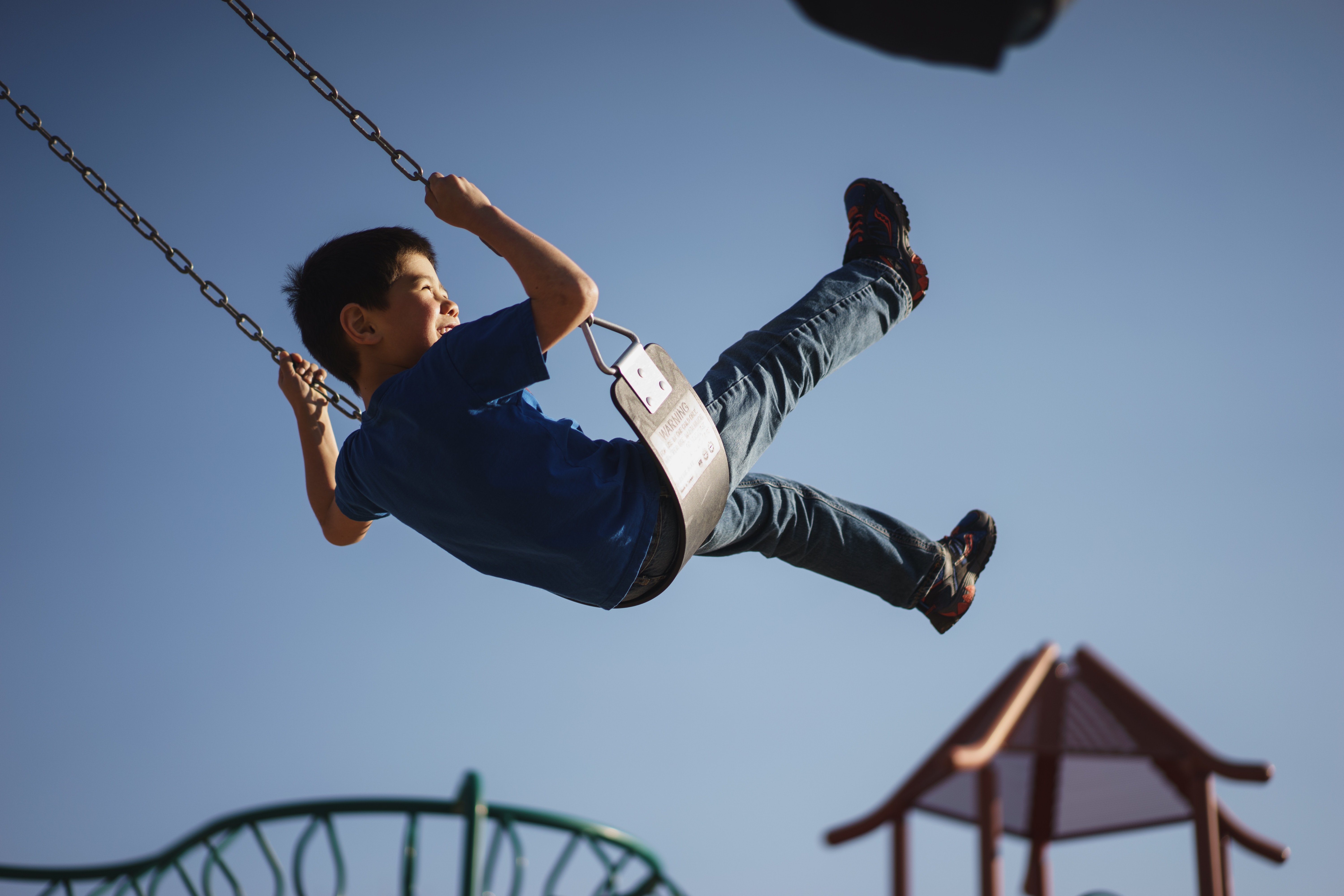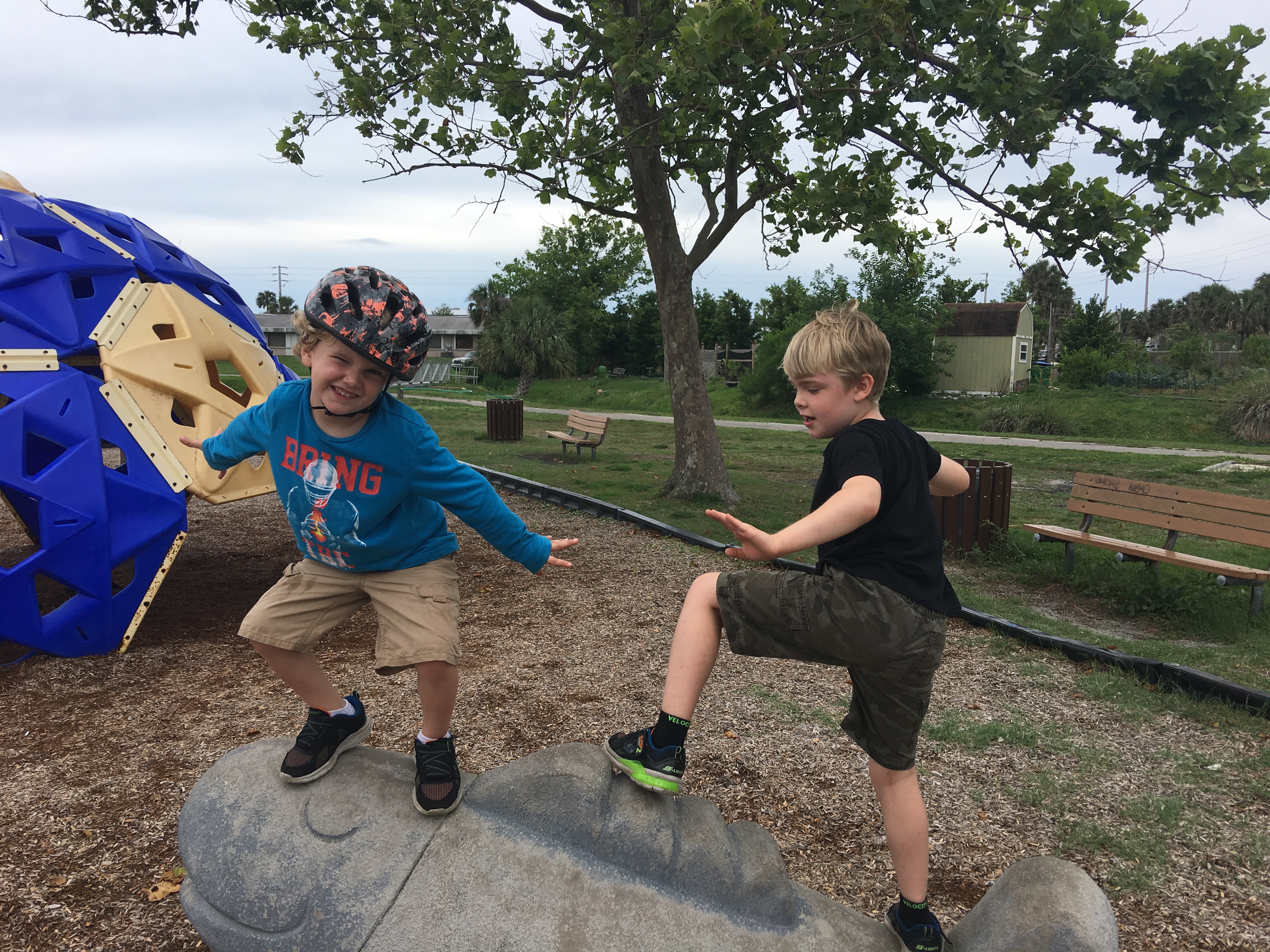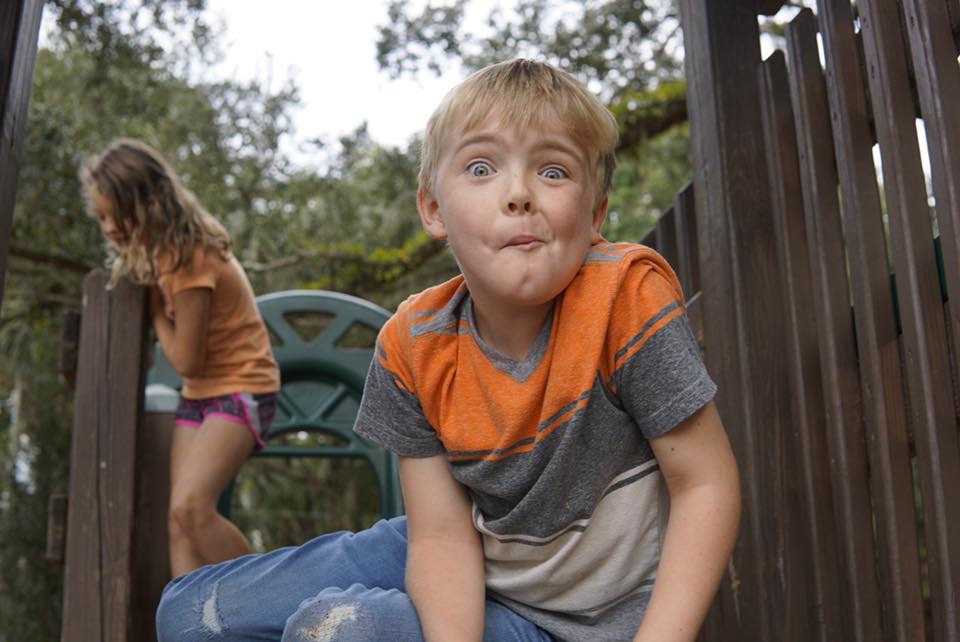 I learned the hard way how easy it is for a child predator to orchestrate an attack. We weren’t at the playground the day my son was targeted. We were in a music lesson with the door wide open, separated only by a thin wall. My boys know to rule out no one and keep no secrets. That’s why they’re both safe today. I shudder to think what might have happened if they hadn’t grown up talking about sensitive topics early and often.
I learned the hard way how easy it is for a child predator to orchestrate an attack. We weren’t at the playground the day my son was targeted. We were in a music lesson with the door wide open, separated only by a thin wall. My boys know to rule out no one and keep no secrets. That’s why they’re both safe today. I shudder to think what might have happened if they hadn’t grown up talking about sensitive topics early and often.
Short of sealing them in a bubble, the most effective way I’ve found to protect my boys is education. That’s part of why I didn’t freak out on a Sunday afternoon when my mom casually mentioned, “Did you know Stacy sends Wendy to the grocery store with money and a list by herself?”
Stacy is my cousin who is the same age as me. Wendy is 10 and the oldest of my cousin’s four well-adjusted, genius children. If I hadn’t just stumbled onto an article in The New York Times on the downside of being too involved in kids’ lives (think co-viewing television instead of taking advantage of the time to fix dinner), I may have been a little wary of my cousin’s choices. But in the aftermath of the read, I was intrigued.
My 5- and 8-year-old boys are respectably self sufficient. They bathe and dress themselves. They pack their lunches. They take their own hard-earned quarters to the school book fair. But the grocery store? No.
 The Illusive Risk-Benefit Balance
The Illusive Risk-Benefit Balance
So, the next time my boys asked “Can we go to the playground?” on the way to my mom’s house, I proposed an experiment.
“What would you think about going to the playground by yourselves?” I said.
Let’s be honest. Part of me was vying for more adult conversation and less sitting on the park bench. But more than that, I wanted my boys to practice their social skills, bond with each other, and see what it feels like to be responsible for themselves.
“No,” said my oldest.
“Yes!” said my youngest, who insists on doing things “his own self.”
“What if the adults sit on the front porch while you play?” I said. “We’ll be able to see you the whole time.”
By the time we pulled into my mom’s driveway, both boys were convinced that a grand adventure awaited.
The True Cost of Freedom
My mom lives on a corner across from an elementary school playground. It’s not exactly known as the safest area in town, but in the 14 years she’s lived there, we’ve never had any problems. I floated my playground idea by the seven other adults assembled at my mom’s house, and while initially leery, they supported my test.
I briefed the boys on playground rules. 1) Stay together. 2) Don’t cross the street without Mommy. 3) Remember to be on the lookout for tricky adults. 4) Have fun. They recited the rules back to me. I walked them across the street, and then watched them run for the playground.
As I walked back toward my mom’s porch, my chest swelled with a sense of pride — the same as when each boy was old enough to toddle atop the playground without me hovering overhead. Baby steps.
It lasted five minutes.
“Mommy!” My youngest called from across the street. “I have to go potty!”
I walked across the street, ushered him to the potty inside my mom’s house, and then sat on the front steps. By then my oldest was talking with a woman, and I knew what was probably going on.
“Are you looking for your brother?” I yelled out to him as I crossed back to the playground. In our rush for the potty, I hadn’t taken the time to inform him of his brother’s whereabouts.
The lady talking with my son relaxed as I walked over and filled them in on the potty break. I recognized her expression. It was the same one I wear when I can’t immediately match a young child to a supervising adult at the beach, in the pool, or on the playground. I had to explain.
“I’m experimenting with giving them more freedom,” I said. “I’ve been watching them from that porch right over there.”
I pointed to my mom’s house, and another mom joined our conversation.
“Not to judge, but just so you know, there are two ladies parked in a Lexus over there, and they’re not here with any kids,” said one mom.
“Human trafficking is a thing. Just saying,” said the other.
Experiment failed.
 Mom Guilt Both Ways
Mom Guilt Both Ways
I walked my oldest back to the porch and gave each boy a popsicle as I vented to my family in my typical melodramatic fashion. “Research says we’re too involved in our kids’ development, but modern culture makes it too hard to function any other way,” I announced.
If you’re one of those moms from the playground and you’re reading this story, I get it. I didn’t pick up on any malintent. We’re all just trying to do the best we can and make the best decisions as we figure out this thing called mothering. I know you both saw that struggle at work within me.
But it still bothered me. I was angry — not at the moms, but at the guilt I took back to the porch with my boys that afternoon. I put their safety to the test and felt embarrassed. And I was confused by whether I was supposed to feel that way or not. I mean, isn’t it reasonable to experiment?
Walking the Line
I realize I don’t have to let my boys go to the playground by themselves to reap the benefits of unsupervised play. But I saw their little man chests swell up with the same sense of transient pride I felt as they ran for the playground side-by-side, and I can’t help but think that might be good for them.
I’m not planning on letting my boys go to the playground on their own again any time soon. I would rather not expose myself and my boys to the probable repeat judgment we might incite. Instead, I’m teaching them about safety and looking for other ways to inch them toward more freedom.
For now, my 8-year-old is scootering around the perimeter of the field during my 5-year-old’s flag football practice, with the caveat that he may not disappear into the bushes to build his own fort.
 About the Author
About the Author
Melissa Gopp is the owner of BlueVenusRising.com, where she writes about parenting, love, and healing from trauma. She is a beach bum at heart and passionate about giving women an anonymous, safe space to share the things they think they’re not allowed to talk about.
















